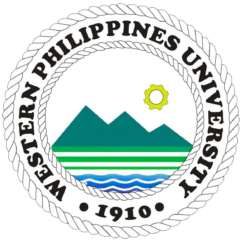Publication Fee
The Palawan Scientist does NOT charge any processing/publication fees.
Plagiarism
Plagiarism is copying the author’s (self-plagiarism) or someone else’s ideas, works, and words without proper acknowledgement, credit or permission of the original author and source. The Palawan Scientist uses a plagiarism checker to identify the originality of the submitted manuscript. Authors should strictly refrain from plagiarism and follow the ethical standard of the research community.
All manuscripts submitted to The Palawan Scientist shall undergo plagiarism check, if plagiarism is detected, authors will be advised to rewrite/rephrase the plagiarized portion before the publication process begins.
Data fabrication and falsification
Fabrication concerns on making up research findings, while falsification is manipulating reports of scientific research results or data with an intention of giving false information about the status of submitted articles. Authors caught reporting any scientific research misconduct will no longer be allowed to submit their manuscript in the journal, and published articles which were later discovered to have such concern may be retracted upon the recommendation of the Technical Advisers.
Ethical consideration
Studies involving human subjects must have followed the institutional and national guidelines set by the ethics board. A consent statement form is secured for studies involving minors or children below 18 years old. Moreover, names and other information of the subjects must be kept confidential and will be excluded from the manuscript. Other relevant documents should be ready upon the request of The Palawan Scientist. Additionally, research studies involving the use of animals must have also followed all institutional and national ethical guidelines for the care and use of test/experimental animals.
Disclaimer
The Editorial Board of The Palawan Scientist does not provide warranties as to the completeness and veracity of the content. Moreover, the opinion and ideas expressed in this publication are by the authors and not necessarily of the publisher. The Western Philippines University cannot accept any legal responsibility or liability arising from plagiarism and other errors.
Retractions
In some cases, the paper published in The Palawan Scientist may be retracted due to scientific fraud, such as unethical authorship, repeated submissions, false claims of authorship, unethical use of data, or plagiarism. Before a paper may be retracted, the complainant or the author must send a signed communication to the Editor-In-Chief (EIC). The editor reserves the right to retract the article as maybe suggested by the Technical Advisers.
Corrections/Errata
Authors are obliged to report errors in their articles that are relevant to the accuracy of published data. The journal shall carry out an investigation, and if, after the investigation, the concern is valid, the author shall be contacted through their email and given the opportunity to address the issue. Corrections and addendum will be included in the “Errata” section of the journal’s succeeding issue.
Removal
The manuscript may remove from the journal’s website when The Palawan Scientist has been informed that the content brings defamatory or infringes other’s legal rights or is otherwise unlawful, if acted upon, the content would pose immediate and serious health risk. In this case, the whole text will be placed with a statement explaining that it’s been removed due to legal reasons.
Withdrawal
It is strongly discouraged to withdraw a manuscript after submission to The Palawan Scientist especially when it has undergone peer-review process. However, a valid reason for withdrawal may be acknowledged by the EIC if all authors signed a letter request clearly stating the purpose of manuscript withdrawal.
Data and Reproducibility
To fully assess the process of a research article, all data related to the submitted articles in The Palawan Scientist should be available for future use. Authors are encouraged to deposit detailed descriptions of their method used in the study to any repositories. However, the authors may provide supporting information to display all necessary data when uploading data to repositories is not possible.
Complaints, Appeals, and Allegations
Any complaints, appeals, and allegations of scientific research misconduct shall be sent to the EIC to explain their concern. The identity of the complainants shall not be disclosed. Parties involved shall be contacted for further inquisition.
Authorship and Contributorship
For articles with two or more authors, it is required to indicate the contributions of each author which may include but not limited to the following: conceptualization, fund sourcing, conduct of experiment, data collection, data analysis, manuscript writing. Any change (deletion or addition) to authorship should be made before the publication of the article. To request such change, the corresponding author must have received permission from all co-authors before emailing the editor citing the reasons for changes. A confirmation from the added or deleted authors must be also received by the editor.
Conflicting Interest
Authors must declare any conflicting interest. If any conflicting interest is present, it must be briefly stated. If there’s none, the statement “The authors declare that there is no conflicts of interests to any authors”.
Copyright Transfer Agreement
All authors are required to provide consent to the terms mentioned in The Palawan Scientist Copyright Transfer Agreement. The agreement shall be accomplished electronically and must be submitted together with the manuscript. The Copyright Transfer Agreement can be downloaded here.
Open Access Agreement
All authors are required to provide consent to the terms mentioned in The Palawan Scientist Open Access Agreement. The agreement shall be accomplished electronically and must be submitted together with the manuscript. The Copyright Transfer Agreement can be downloaded here.
Repository Policy
The Palawan Scientist allows authors to deposit different versions of their articles in an institutional or other repository of their choice, including submitted, accepted, and published versions without any embargo.
